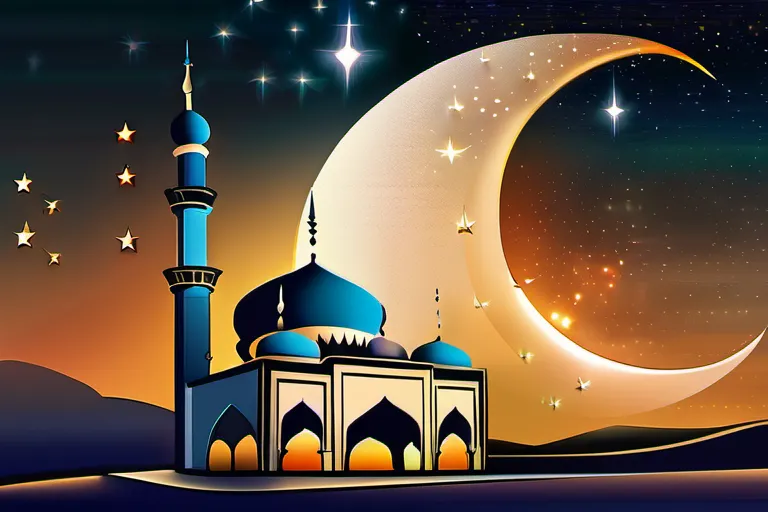Explore the Islamic perspective on predestination, its key principles, and how it impacts faith and daily life.
Predestination, or Qadar, is a fundamental concept in Islam that shapes the beliefs and practices of Muslims worldwide. In this article, we delve into the intricacies of predestination, exploring its origins, key principles, and impact on the lives of believers.
The Concept of Predestination in Islam
Imagine life as a grand script, carefully written before the world was even imagined. In Islam, this idea is known as qadar, more commonly translated as predestination. But what does it mean when we say our lives are predetermined? How do Muslims reconcile the idea of an all-knowing and just God with the freedom to make choices?
Let’s dive into the origins of this concept in Islam. The Quran speaks about qadar at several places, often linking it with the knowledge and power of Allah (God). It’s a reminder that everything happens under His will and is part of His divine plan. But here’s a rhetorical question: if we believe in qadar, why do we still strive to make choices?
The key lies in understanding the balance between predestination and free will. Islam teaches us that while Allah knows everything, including our future actions, He also respects our ability to choose. It’s as though Allah is the author of a book, but allows each character to contribute their unique story. This harmony between divine knowledge and human agency forms the crux of Islamic qadar.
Consider this: if our lives were not predetermined, would we truly feel secure knowing that every moment has been planned? And if everything is set in stone, why bother making decisions at all? The beauty of Islam’s view on predestination is its encouragement to embrace both the certainty and the challenge of life. It’s a dance between faith and action, where our choices are as important as they are guided by divine wisdom.
In essence, qadar in Islam is not about fate determining every detail but about understanding that within the vastness of Allah’s knowledge, there is room for us to exercise free will. It’s a profound thought that can both comfort and challenge us, reminding us that our lives are intricately linked with the grand design of the universe.
Now, how does this concept impact daily life? When faced with challenges or successes, Muslims often turn to qadar for guidance. It helps them find peace in adversity and gratitude in prosperity, knowing that every event is part of a larger plan.
Key Principles of Predestination
Understanding predestination in Islam involves diving into some profound and intricate principles that shape both faith and daily life. One of the key questions often asked is, ‘Does Allah have full knowledge of everything that will happen, or can human actions change outcomes?’ This query hinges on the concept of Allah’s omniscience, which means He knows all things from the beginning to the end, including every choice and action we make.
Imagine a vast library where every page represents an event in time, past, present, or future. In this library, Allah has written down every detail with perfect accuracy. This idea of omniscience is central to Islamic belief, as it emphasizes that nothing happens outside of His knowledge and will.
However, the beauty lies in the balance between divine foreknowledge and human free will. If we only had to follow a predetermined path written by someone else, our sense of agency would be lost. But Islam teaches us that while Allah knows what choices we’ll make, He has given us the freedom to choose our paths. This is where the metaphor of ‘life as a canvas’ comes in—Allah paints the picture with broad strokes but leaves it for us to add the finer details through our actions and decisions.
This interplay between divine wisdom and human choice is what makes predestination in Islam so intriguing. It challenges us to embrace both our destiny and our responsibility to make choices that align with faith and righteousness. As we navigate life’s complexities, pondering these principles can offer comfort and guidance, reminding us that even amidst uncertainty, there is a higher purpose and plan set by the Creator.
Predestination and the Quran
In the heart of Islamic theology, predestination plays a pivotal role, much like a map guiding one through uncharted territory. How do we find evidence for this concept in the verses of the Quran? The Quran, our divine guidance, is replete with references that allude to the idea of predestination. Consider the verse: ‘Say, ‘Nothing will happen to us except what Allah has decreed for us.” (Quran 9:51) This verse encapsulates a profound truth—events and circumstances in our lives are part of a larger divine plan. But how does this belief shape our understanding?
Let’s delve into the Quranic verses that highlight predestination. Take, for instance, Surah Al-Qamar (Verse 49): ‘Your Lord knows best who has taken the wrong path and He also knows well the guided ones.’ Here, Allah emphasizes His complete knowledge of every individual’s condition, past, present, and future. This verse mirrors a deeper truth: our destiny is predetermined by Him, yet we must make conscious choices in this life.
Another compelling passage is found in Surah Al-An’am (Verse 57): ‘And nothing happens to you except with the permission of Allah. And whatever good there is for you or of harm, it is from Allah.’ This verse underscores a fundamental belief: every event, no matter how small or large, has its place within the divine decree. It invites us to see beyond our limited understanding and trust in the grand design.
These verses, along with many others, provide a strong foundation for the Islamic belief in predestination. They challenge us to reflect on our actions while acknowledging that we operate within a framework of divine will. How does this concept influence your daily prayers or decisions? Do you see yourself as part of a larger plan or struggle alone against destiny?
The Quranic evidence for predestination is not just about acceptance but also about finding peace and purpose in life’s journey. By understanding that our destinies are written, we can approach each day with hope and faith, trusting that every step we take aligns with the will of Allah.
The Role of Predestination in Daily Life
Imagine you are on a journey, every step meticulously planned by someone who knows your destination before you even set out. In Islam, this journey and its challenges are seen through the lens of predestination, determining not just what lies ahead but how to navigate those paths. How does this belief shape daily life for Muslims?
Consider prayer, a central practice in Islamic faith. When performing salah, Muslims often reflect on their role in this grand plan. Is it merely following a routine or is there deeper significance? The act of praying five times a day can be seen as both a submission to the will of God and an active participation in fulfilling one’s destiny. Each prayer becomes a small step towards realizing one’s purpose.
Fasting during Ramadan, another profound practice, presents its own set of challenges. Muslims fast from dawn until dusk, abstaining from food and drink for hours on end. This period of abstinence is not just about physical endurance but also spiritual reflection. Fasting becomes a means to align oneself with God’s will, acknowledging that every moment and action has a divine purpose.
The daily practice of hajj, the pilgrimage to Mecca, further illustrates how predestination impacts Muslims’ lives. This once-in-a-lifetime journey is not merely about visiting holy sites but about reaffirming one’s commitment to God and understanding one’s place in this grand scheme. Every step towards the Kaaba symbolizes submission and obedience, emphasizing that every act of worship and devotion serves a larger purpose.
By embracing predestination, Muslims find strength and guidance in their daily lives. Each religious practice, from salah to fasting, becomes a tool for navigating this predetermined path. It is not about fate determining everything but rather accepting that every step taken aligns with a higher plan. This belief encourages Muslims to live each moment with purpose, ensuring that their actions contribute positively towards their ultimate destiny.
In essence, the role of predestination in daily life is one of navigation and alignment. Through prayer, fasting, and other religious practices, Muslims find ways to stay on course, embracing every challenge as part of a greater journey. This understanding provides both comfort and motivation, reminding them that even amidst trials and tribulations, they are walking in the path laid out for them by their Creator.
Controversies and Debates Surrounding Predestination
As we delve into the heart of predestination in Islam, one cannot help but wonder about the interplay between divine wisdom and human free will. How can predestination, a concept that seems to limit our choices, coexist with human responsibility? Some argue that if everything is predetermined by Allah’s knowledge, then why should humans be held accountable for their actions? This question has sparked intense debates among scholars and believers alike.
The controversy revolves around the idea of divine justice. If predestination implies that outcomes are decided before anything happens, how does it align with the notion of fairness in judgment? Is it just if a person is condemned to suffering or rewarded for their virtue without ever having the chance to choose otherwise?
Mirroring this dilemma, another aspect is human responsibility. How can Muslims be expected to act righteously when everything has already been decided by Allah? This conundrum challenges our understanding of human accountability. Is it possible for humans to freely make choices while acknowledging the ultimate sovereignty of Allah?
The discourse on predestination often leads to a deeper exploration of theological perspectives. Some scholars argue that predestination does not negate human free will but rather complements it, allowing individuals to experience the full spectrum of life’s challenges and triumphs under divine guidance. Others assert that while humans have choices, the ultimate outcome is beyond their control.
These debates are not just academic exercises; they shape the very fabric of Muslim communities. The way predestination is understood influences how Muslims perceive themselves, their roles in society, and their interactions with one another. Whether seen as a liberating truth or a restrictive doctrine, predestination remains a central theme that continues to be scrutinized and reinterpreted across different Islamic traditions.
In the end, these controversies highlight the complex interplay between faith and reason in Islam. They remind us that understanding predestination is not merely about accepting a theological concept but also involves grappling with the profound implications it has on our daily lives and moral responsibilities.
The Impact of Predestination on Islamic Theology
Imagine walking through life, each step guided by an unseen hand. In Islam, this guiding force is known as predestination, which plays a significant role in shaping one’s beliefs about Allah, humanity, and the afterlife. How does predestination influence our perception of destiny? And how do Muslims reconcile their faith with the concept of free will?
Predestination in Islam is often described through the metaphor of a river flowing towards the sea. Just as the river follows its natural course, so too are human lives guided by divine will. However, this doesn’t mean humans have no choice; it’s more like walking along the path Allah has set for you, yet still having the freedom to choose how you walk it.
How does this idea impact our understanding of Allah? Does it make Him seem distant and uninvolved in human affairs? In reality, predestination underscores the sovereignty and omnipotence of Allah. It teaches us that everything happens by His will, yet He remains just and fair. This concept is crucial for Muslims to understand divine justice amidst the complexities of life.
But what about humanity’s role in this grand design? Can individuals make choices, or are they merely pawns in a cosmic chess game? The answer lies in recognizing that while Allah has decreed outcomes, He also provides guidance and wisdom through His revelations. Muslims strive to align their actions with these divine directives, believing that even our choices reflect His will.
Moreover, predestination profoundly influences beliefs about the afterlife. It suggests that the ultimate purpose of this life is known only to Allah, emphasizing the importance of living in accordance with Islamic principles. This understanding can serve as a source of comfort and guidance, reminding believers that their final destination has already been determined by the One who sees everything.
Ultimately, predestination in Islam offers a comprehensive framework for understanding one’s place in the universe. It balances divine sovereignty with human agency, guiding Muslims to live their lives in harmony with Allah’s will while acknowledging the complexity of their choices and actions.
Conclusion
 Predestination in Islam is a complex and multifaceted concept that challenges our understanding of free will and divine justice. By gaining a deeper understanding of this principle, we can appreciate the intricacies of Islamic belief and gain insights into the faith as a whole.
Predestination in Islam is a complex and multifaceted concept that challenges our understanding of free will and divine justice. By gaining a deeper understanding of this principle, we can appreciate the intricacies of Islamic belief and gain insights into the faith as a whole.











